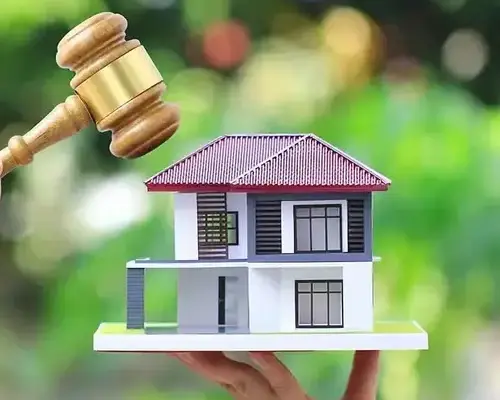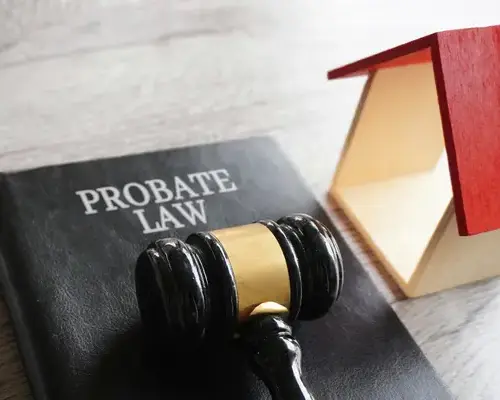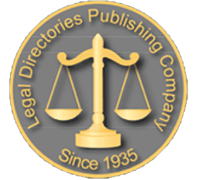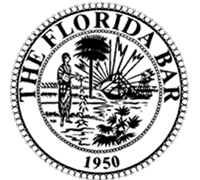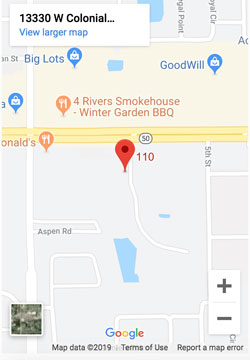What Does a Foreclosure Attorney Do? A Simple Guide
Many people believe that once a foreclosure lawsuit is filed, the fight is already over. This is one of the most damaging myths out there. The truth is, you have rights, and lenders are required to follow a strict set of rules—rules they sometimes break. Hiring a legal expert isn’t about delaying the inevitable; it’s about strategically defending your property. Understanding what does a foreclosure attorney do is key to shifting your perspective from defense to offense. They meticulously review your case for procedural errors, challenge the lender’s right to foreclose, and explore powerful alternatives you may not even know exist.
Key Takeaways
- Don’t wait for a summons: The best time to contact an attorney is when you receive a Notice of Default. This proactive step provides the time and leverage needed to explore a wider range of strategies beyond just courtroom defense.
- Think strategy, not just defense: A foreclosure attorney is your strategic partner, working to find the best resolution for your specific situation. This often involves negotiating loan modifications or identifying lender errors to stop the process entirely.
- Florida-specific expertise is your advantage: Foreclosure laws are unique to each state. Hiring an attorney who specializes in Florida real estate law gives you a critical edge, as they can identify procedural errors and defenses that a general lawyer might miss.
What Is a Foreclosure Attorney?
A foreclosure attorney is a lawyer who specializes in defending homeowners against foreclosure actions initiated by lenders. Think of them as your dedicated advocate, someone who steps in to protect your rights when you’re at risk of losing your home. Their job is to represent you, analyze your case for any errors or potential defenses, and explore every available option to achieve the best possible outcome. This might mean fighting the foreclosure in court, negotiating a more manageable payment plan with your lender, or finding an alternative solution that allows you to move on without a foreclosure on your record.
Facing foreclosure can feel incredibly isolating, but you don’t have to go through it alone. A foreclosure attorney understands the complex legal landscape and can offer clear guidance through a confusing process. They work on your behalf to communicate with the lender and the courts, ensuring your side of the story is heard. Whether you’ve just received a notice or are deep into the legal proceedings, their expertise can provide a sense of control and a strategic path forward. Their ultimate goal is to safeguard your interests and help you find a resolution that protects your financial future.
Their Qualifications and Credentials
When you’re looking for a foreclosure attorney, you need someone with more than just a law degree. You want a licensed lawyer with a deep understanding of foreclosure defense and strong professional credentials. Look for experienced attorneys who have a proven track record of defending homeowners in court. Strong negotiation skills are also critical, as they will be communicating with your lender to find solutions. A qualified attorney is committed to protecting your rights and will be well-versed in all the alternative options available to you, ensuring you have a clear picture of the road ahead.
Why Specialization in Florida Real Estate Law Matters
Foreclosure isn’t a one-size-fits-all legal issue; the laws vary significantly from state to state. That’s why hiring an attorney who specializes in Florida’s real estate laws is so important. Florida is a “judicial foreclosure” state, which means the lender must file a lawsuit to foreclose on your home. This process comes with specific rules, deadlines, and procedures. An attorney who focuses on this area of law understands the unique legal strategies and defenses that can be used in Florida courts. They can spot procedural errors by the lender that a general practitioner might miss, giving you a much stronger chance of successfully defending your home.
How Can a Foreclosure Attorney Help You?
Facing foreclosure can feel overwhelming, but you don’t have to go through it alone. A foreclosure attorney acts as your advocate, strategist, and guide, helping you understand your rights and explore every available option. Their role goes far beyond just showing up in court; they provide a comprehensive support system designed to protect your interests and, ideally, your home. From the moment you receive a notice from your lender, an attorney can step in to manage communication, analyze the details of your case, and build a defense strategy tailored to your specific situation.
Hiring an experienced real estate attorney means you have a professional on your side who understands the complexities of Florida law. They can identify potential errors made by the lender, negotiate for more favorable terms, and represent you with confidence in any legal proceedings. Their goal is to find the most practical and effective solution, whether that means modifying your loan, fighting the foreclosure in court, or arranging an alternative that minimizes financial damage. With their help, you can make informed decisions instead of reacting under pressure.
Represent You in Court
If your lender files a foreclosure lawsuit, you will receive a summons and complaint. This is the official start of the legal process, but it’s not the end of the road. A foreclosure attorney can represent you in court, responding to the lawsuit and presenting your defense. They handle all the legal filings, court appearances, and communication with the judge and the lender’s lawyers. Having a skilled professional argue on your behalf ensures your side of the story is heard and that your rights are protected throughout the litigation process.
Help Modify Your Loan
One of the most effective ways to stop a foreclosure is to make your mortgage payments more affordable. A foreclosure attorney can help you apply for a loan modification, which is a permanent change to the original terms of your loan. This could involve reducing your interest rate, extending the loan term, or even lowering the principal balance. Your attorney can help you prepare a strong application and negotiate with the lender to secure a modification that allows you to stay in your home with a payment you can manage.
Negotiate with Your Lender
Communicating with a large lending institution can be intimidating and frustrating. An attorney can take over all negotiations with your lender, leveraging their experience to achieve a better outcome. They can work to arrange alternatives to foreclosure, such as a short sale (selling the home for less than you owe) or a deed in lieu of foreclosure (transferring ownership to the lender to satisfy the debt). The experienced attorneys at Legal Counsel P.A. can offer tangible solutions that go beyond simply delaying the process, aiming for a resolution that best suits your financial situation.
Review and Analyze Legal Documents
Foreclosure paperwork is dense and complicated, and lenders sometimes make mistakes. An experienced attorney will carefully review every document related to your mortgage and the foreclosure proceedings to find any errors or procedural violations. For example, the lender may have failed to follow proper notification rules or may not have the legal standing to foreclose. Identifying these issues can be a powerful defense, potentially leading to a dismissal of the case or creating significant leverage for negotiations. This detailed analysis is a critical part of building a strong defense strategy.
When Is It Time to Hire a Foreclosure Attorney?
Knowing the right moment to call an attorney can feel like a tough decision, especially when you’re already under pressure. But when it comes to foreclosure, timing is everything. Certain events are clear signals that you need professional legal guidance. Acting decisively at these key moments can significantly change the outcome for your home and your financial future. If you find yourself in any of the following situations, it’s time to stop guessing and start talking to an experienced foreclosure attorney who can protect your interests.
You’ve Received a Notice of Default
Receiving a Notice of Default is the official starting line for the foreclosure process. This isn’t just another letter from your lender; it’s a formal legal document stating their intent to foreclose on your property. Once you have this notice in hand, the clock is ticking. This is the most critical time to consult with an attorney. They can immediately review the notice, explain your rights under Florida law, and outline the potential next steps. Trying to handle this on your own can lead to missed deadlines and lost opportunities to defend your home. An attorney ensures you respond correctly and strategically from the very beginning.
You Suspect Errors in Your Paperwork
Lenders and loan servicers are large institutions, and they make mistakes. If you have a gut feeling that something is wrong with your loan documents or the foreclosure paperwork, trust it. An attorney can investigate for common errors, such as the lender’s failure to prove they own your loan or serious miscalculations in your account. These aren’t just minor typos; they can be powerful legal arguments in your defense. It is incredibly difficult to challenge a foreclosure on these grounds without a deep understanding of real estate law. A lawyer knows exactly what to look for and how to use any mistakes to your advantage.
You’re a Service Member Facing Foreclosure
If you are an active-duty service member, you have specific legal protections against foreclosure under federal law, primarily the Servicemembers Civil Relief Act (SCRA). These rules are designed to ease financial burdens on military personnel, but they can be complex. For example, the SCRA may require the lender to get a court order before they can foreclose. A foreclosure attorney can help you understand and assert these important rights. They will ensure your lender follows the proper procedures and that you receive every protection you are entitled to for your service. Don’t let these rights go unused—get an expert to advocate for you.
Your Financial Situation Is Complicated
Sometimes, a straightforward solution isn’t possible because your financial life is complex. Perhaps you’re also dealing with a divorce, the death of a spouse, or significant medical debt. Or maybe your situation involves new or changing financial regulations that affect your mortgage. When multiple factors are at play, a foreclosure attorney can help you see the big picture. They can work with you to untangle the complexities and find a path forward that addresses your unique circumstances. Instead of trying to manage it all alone, let an attorney provide the clarity and strategy you need to make the best decision for your future.
How Will an Attorney Defend Your Home?
When you’re facing foreclosure, it can feel like the lender holds all the cards. But that’s not the case. An experienced attorney has several ways to protect your rights and defend your home. Foreclosure defense is all about using legal strategies to fight a foreclosure action, giving you the chance to stop or delay the process.
Your lawyer’s first step is to carefully review every detail of your situation. They’ll look at your loan documents, the lender’s actions, and the foreclosure paperwork to find the strongest defense for you. Whether it’s a mistake in the lender’s paperwork or a violation of your rights, a skilled real estate attorney knows exactly what to look for. From there, they can build a strategy tailored to your specific circumstances.
Exploring Common Legal Defenses
One of the most effective ways to defend your home is by raising legal defenses that address the lender’s conduct. For example, did the lender engage in unfair or predatory lending practices when you first got your mortgage? Were all the terms of the loan clearly disclosed according to federal laws like the Truth in Lending Act (TILA)? An attorney can investigate whether your lender violated any state or federal consumer protection laws. If they find evidence of misconduct, they can use it to fight the foreclosure. This approach focuses on holding the lender accountable for their actions and ensuring they followed the law from the very beginning of your loan agreement.
Challenging the Lender’s Right to Foreclose
Sometimes, the best defense is to question whether the lender even has the legal right to foreclose. Over the years, mortgages are often sold and transferred between different banks and financial institutions. This can create a messy paper trail, and the entity trying to foreclose might not be able to prove they are the true owner of your loan. Your attorney can demand that the lender “produce the note” to prove they have the legal standing to sue. They can also use defenses like “unclean hands” if the lender acted in bad faith. By challenging the lender’s right to foreclose, your attorney places the burden of proof squarely on them, which can sometimes stop a foreclosure in its tracks.
Using Procedural Defense Strategies
Florida has strict procedural rules that lenders must follow when foreclosing on a property. If they miss a step or make a mistake, it can be a powerful defense. A foreclosure defense lawyer will thoroughly investigate whether the lender complied with all relevant laws during the loan origination, servicing, and the foreclosure process itself. Did they provide you with proper notice? Was the lawsuit filed correctly? Were all the documents accurate? Even a seemingly small error can be enough to get a foreclosure lawsuit dismissed. The experienced attorneys at our firm can meticulously review your case to identify any procedural errors and use them to your advantage in court, potentially delaying the process or creating an opportunity to negotiate a better outcome.
Exploring Alternatives to Foreclosure
Receiving a foreclosure notice can feel like the end of the road, but it’s often the beginning of a new conversation about your options. Foreclosure is a lengthy and expensive process for lenders, which means they are frequently open to finding another solution. An experienced attorney can help you understand and pursue these alternatives, working to find a path forward that protects your financial future and, in many cases, helps you keep your home. These strategies focus on creating a more sustainable situation for both you and your lender.
Modifying or Restructuring Your Loan
One of the most common alternatives is a loan modification. This isn’t a new loan, but rather a change to the terms of your existing one to make your monthly payments more manageable. An attorney can negotiate with your lender to potentially lower your interest rate, extend the repayment period, or even reduce the principal balance you owe. The goal is to restructure the debt so you can get back on track with payments and avoid losing your home. A skilled real estate attorney can handle these complex negotiations on your behalf, presenting your financial situation clearly to the lender to reach a favorable agreement.
Arranging a Short Sale or Deed in Lieu
If staying in your home isn’t feasible, there are still ways to avoid the negative impact of a foreclosure. Your attorney can help arrange a short sale, where the lender agrees to let you sell the property for less than the total amount you owe on the mortgage. Another option is a deed in lieu of foreclosure, which involves voluntarily transferring the property’s title back to the lender. While you still have to move, both of these options are generally less damaging to your credit than a formal foreclosure. An attorney can represent you in these discussions to ensure the terms are fair and protect you from future liability.
Considering Bankruptcy as an Option
Filing for bankruptcy is a powerful legal tool that can immediately stop a foreclosure in its tracks. When you file for Chapter 13 bankruptcy, the court issues an “automatic stay,” which legally prohibits your lender from continuing with the foreclosure process. This gives you breathing room to reorganize your finances. Under a Chapter 13 plan, you can catch up on your missed mortgage payments over a three- to five-year period while also making your current payments. Our experienced attorneys can guide you through this process, helping you determine if it’s the right strategic move for your situation and working to protect your home.
How to Choose the Right Foreclosure Attorney
Finding the right attorney can feel like another overwhelming task on your list, but it’s one of the most important steps you can take. The right legal partner won’t just represent you; they’ll be your guide and advocate. When you’re vetting potential attorneys, focus on a few key areas to ensure you’re putting your home and your future in the best possible hands.
Look for Relevant Experience and Qualifications
When you’re searching for a foreclosure attorney, you need more than just a general practitioner. Look for someone whose work is centered on Florida real estate law. This specialization is critical because foreclosure processes are governed by specific state statutes and local court rules. An experienced foreclosure attorney understands the nuances of the system, from filing deadlines to the specific arguments that resonate with local judges. They should have strong negotiation skills and a deep commitment to protecting your rights as a homeowner. Don’t be afraid to ask direct questions about their experience with cases similar to yours. A qualified attorney will be able to speak confidently about their background and how it applies to your situation.
Prioritize a Strong Track Record and Clear Communication
Experience is one thing, but a history of successful outcomes is another. Look for an attorney with a proven track record of helping homeowners find resolutions. This doesn’t always mean winning in court; it can mean successfully negotiating a loan modification or arranging a short sale. Beyond their professional credentials, pay close attention to how they communicate. You need someone who can explain complex legal ideas in plain English, without making you feel overwhelmed. During your initial consultation, notice if they listen to your story and answer your questions directly. The attorneys you work with should make you feel supported and informed, not confused and in the dark.
Debunking Myths About Hiring an Attorney
Many homeowners hesitate to hire an attorney because of common misconceptions. One of the biggest myths is that a lawyer can only delay the foreclosure process. In reality, a skilled attorney does much more. They work to protect your legal rights, identify errors made by the lender, and explore all viable alternatives to foreclosure. Another myth is that you’ll face foreclosure after a single missed payment. Most lenders won’t start the process until you are at least three months behind. This gives you a crucial window to seek legal advice and develop a strategy. Understanding these facts can help you move forward with confidence instead of fear.
Understanding the Cost of a Foreclosure Attorney
Talking about money can be uncomfortable, especially when you’re already under stress. But understanding how foreclosure attorneys charge for their services is a crucial step in finding the right help for your situation. Most legal fees aren’t one-size-fits-all, so it’s important to know the common fee structures and what factors can influence the final price. This knowledge will help you ask the right questions and find an attorney whose services fit your budget.
Hourly vs. Flat-Fee: What’s the Difference?
Most foreclosure attorneys use one of two billing models: hourly or a flat fee. With an hourly rate, you pay for the actual time the attorney spends on your case, from making phone calls to representing you in court. A flat-fee arrangement means you pay a single, predetermined price for a specific service, like negotiating a loan modification or handling the entire foreclosure defense. The total cost can range from a few hundred to several thousand dollars, depending on your case. A flat fee offers predictability, while an hourly rate might be more suitable for smaller tasks. Always ask for a clear explanation of what each fee structure includes.
Exploring Payment Plans and Fee Arrangements
The cost of legal help shouldn’t prevent you from getting it. If hiring an attorney for the entire foreclosure process feels out of reach, you have other options. Many people choose to pay for a single consultation to get professional advice on their next steps without a major financial commitment. Some firms also offer payment plans to spread the cost over time. Don’t hesitate to be upfront about your financial situation and ask about flexible arrangements. A good attorney understands the strain you’re under and will be transparent about their fees. You can schedule an initial consultation to discuss your case and explore what payment options are available.
What Factors Influence the Final Cost?
The final bill for legal services isn’t arbitrary; several key factors determine the cost. The complexity of your case is the biggest variable—a straightforward negotiation with your lender will cost less than a lengthy court battle. The attorney’s experience also plays a role. A seasoned lawyer with a deep understanding of Florida real estate law may have a higher rate, but their expertise can be invaluable in achieving a better outcome. Your specific goals, whether it’s keeping your home or arranging a short sale, will also shape the legal strategy and its associated costs. When you speak with potential attorneys, ask them directly about their fees and what might change the final price.
What to Expect When You Hire an Attorney
Deciding to hire an attorney is a big step, and it’s natural to wonder what comes next. The process is more straightforward than you might think. It’s all about creating a partnership where you feel informed, supported, and confident in the path forward. From the first handshake to the final resolution, your attorney is there to guide you through the complexities of the legal system. The goal is to demystify the process, give you a clear understanding of your options, and build a strategy tailored to your specific situation. Let’s walk through what you can expect when you team up with a legal professional.
Your First Meeting: The Initial Consultation
Your first meeting is a crucial starting point. Think of it as a strategy session where you and the attorney get to know each other and the details of your case. You’ll share your story and provide any documents you have, like your mortgage agreement and notices from your lender. The attorney will listen, ask questions, and offer an initial assessment of your situation. Even this single meeting can provide you with vital advice and a clearer understanding of your options. This is also your chance to see if the attorney is the right fit for you. Come prepared with questions, and don’t hesitate to ask about their experience with cases like yours.
Staying Informed: Communication and Updates
Clear and consistent communication is the bedrock of a good attorney-client relationship. From the beginning, your lawyer should explain how they’ll keep you updated on your case, whether it’s through phone calls, emails, or scheduled meetings. A competent attorney will make sure you understand every development and what it means for you. You should always feel comfortable reaching out with questions or concerns. At Legal Counsel P.A., our team of attorneys prioritizes keeping you in the loop, ensuring you never feel left in the dark about the status of your case.
The Road Ahead: Timelines and Potential Outcomes
Foreclosure cases don’t resolve overnight. Your attorney will help you understand the road ahead by outlining a legal strategy, potential timelines, and the range of possible outcomes. They will represent you in all legal proceedings and help you explore every available option, from fighting the foreclosure in court to negotiating with your lender. Part of their job is to manage your expectations and prepare you for each stage of the process. With deep expertise in Florida real estate law, a skilled attorney can provide the court advocacy you need to work toward the best possible result for your home and family.
Related Articles
- Florida Foreclosure Defense Lawyer: Top 5 Tips in 2024
- Why Hire Foreclosure Attorneys? 5 Key Reasons
- 5 Ways Foreclosure Lawyers Can Save Your Home
- Residential Foreclosure Defense – Legal Counsel P.A.
- Individual Debt Services- Short Sales – Legal Counsel P.A.
Frequently Asked Questions
Is it ever too late to hire a foreclosure attorney? It’s almost never too late, but the sooner you act, the more options you will have. Even if a lawsuit has already been filed or a sale date is approaching, an attorney can still step in to review your case for defenses or negotiate with the lender. The best time to call is as soon as you receive a Notice of Default, as this gives your attorney the maximum amount of time to build a strong strategy for you.
Can a foreclosure attorney guarantee they can save my home? No ethical attorney can guarantee a specific outcome. The legal process has too many variables. What a skilled attorney can guarantee is that they will protect your rights, explore every possible defense, and work strategically to achieve the best possible result for your situation. Their expertise significantly improves your chances of reaching a favorable resolution, whether that means keeping your home or finding an alternative that protects your financial future.
What’s the difference between a loan modification and a short sale? These are two very different alternatives to foreclosure. A loan modification is an agreement with your lender to change the terms of your existing mortgage to make your payments more affordable, with the goal of helping you stay in your home. A short sale is an agreement to sell your home for less than what you owe on the mortgage. This option is for when staying in the home is no longer possible, and it helps you avoid the negative impact of a formal foreclosure on your credit.
I’m already behind on my mortgage. How can I afford to hire a lawyer? This is a very common and understandable concern. Many foreclosure attorneys offer different fee structures to make legal help more accessible, such as flat fees for specific services or initial consultations for a smaller fee. It’s important to be upfront about your financial situation. A good attorney will be transparent about their costs and may offer payment arrangements. Think of it as an investment in protecting your most valuable asset and your financial stability.
What should I bring to my first meeting with a foreclosure attorney? To make your first consultation as productive as possible, gather all the documents related to your home and mortgage. This includes your original loan agreement, the most recent mortgage statement, the Notice of Default or any other legal notices you’ve received, and any letters or emails you have exchanged with your lender. This paperwork gives the attorney the information they need to give you a clear assessment of your case.


